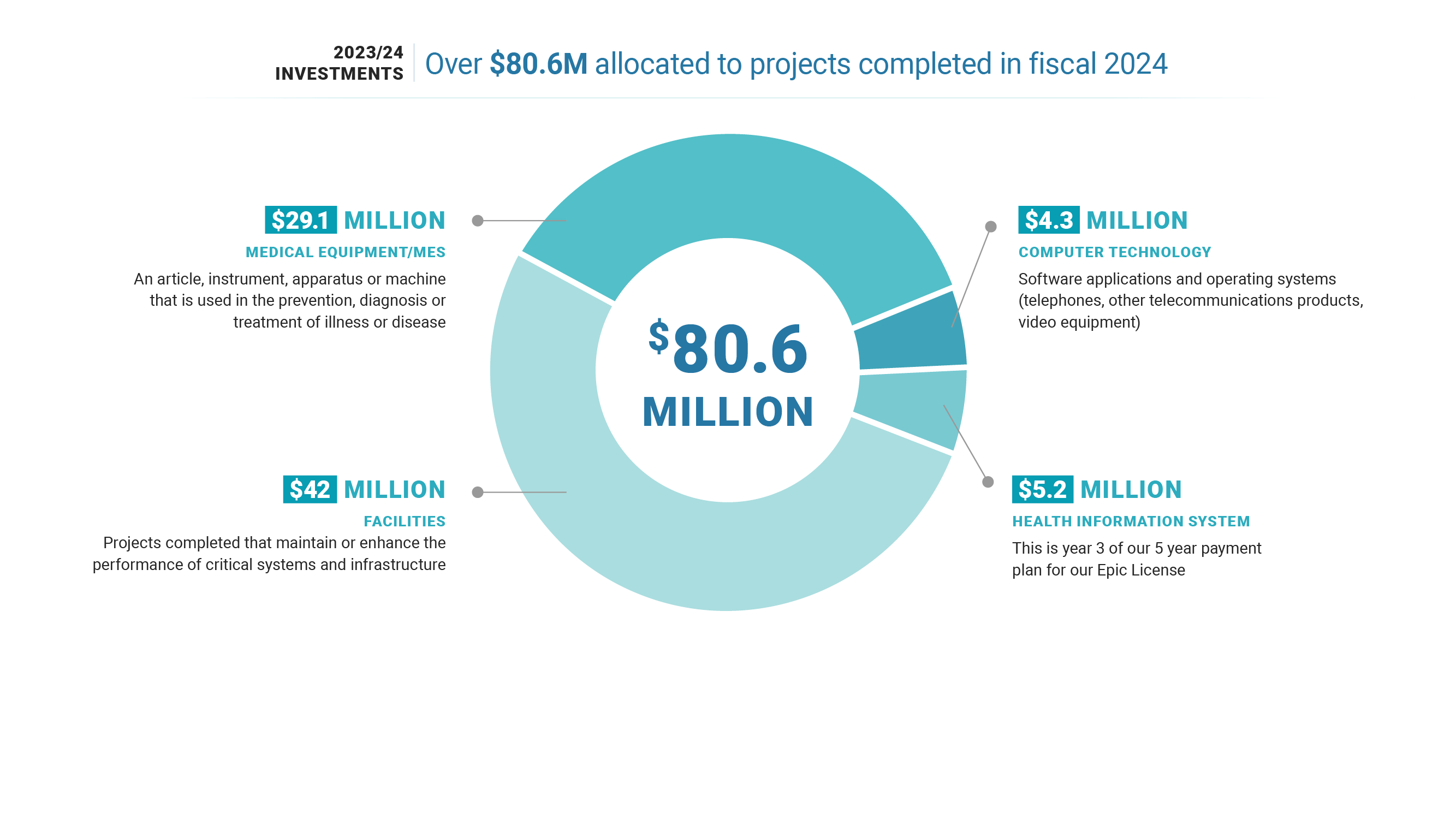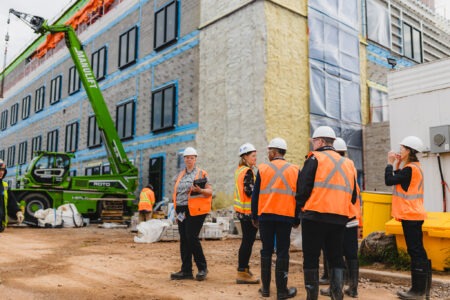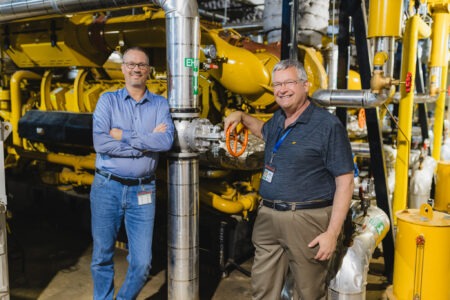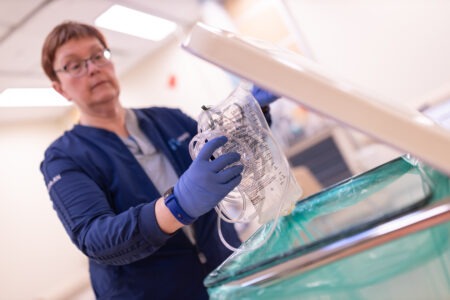SUSTAINABILITY
As a key pillar of our strategic plan, sustainability calls on all of us to be responsible users of our organization’s and community’s resources. This includes reducing our environmental footprint, being good stewards of our financial resources, and planning for the future so that we can anticipate and meet the needs of our growing region for generations to come.
Every day our teams provide care for thousands of people who have immediate health care needs. While we work to respond to the needs of our community today, we must also plan for the needs of tomorrow. This year we made significant progress on several major projects to expand and modernize our sites and services so that we can provide high quality care for the people who needs us today as well as five, ten, and twenty years from now.
In partnership with the provincial government, Hamilton Health Sciences is on a journey to build a healthier future for our region by replacing our oldest hospital buildings with modern facilities designed to support the health care of today and tomorrow. This includes:
Beyond bricks and mortar, we’re always working to remain responsive to the ever-evolving health care needs of our community and region. This includes embracing innovative approaches to care, such as:
Given that hospitals are a significant contributor to greenhouse gas (GHG) emissions and waste production in Canada, we have an obligation to reduce our environmental impact which, in turn, supports the health of people living across our community and region.
We are reducing emissions, diverting waste, and optimizing energy consumption across our sites and have a plan to reach Net Zero carbon emissions by 2050. Creating an Environmental Management Plan is a priority within our 2024 Strategic Plan.
View a snapshot of our environmental performance in 2023-24, or scroll down to learn more.
As a hospital, our community and funding partners entrust us with funds to ensure the delivery of high quality, efficient care and service. Despite ever-increasing demands for hospital care in our region, we continue to find innovative ways to reduce costs while growing our workforce and maintaining the highest standard of care. We’ve also realized more benefits resulting from some of our major investments, including implementation our new hospital information system, Epic, such as increased patient safety and reduced operational costs.









